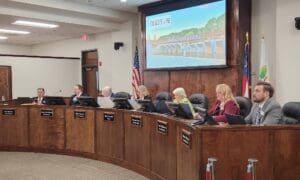The Fayette County Extension Office has some educational programs coming up over the next few weeks. All programs begin at 10 a.m. on the dates listed below. These programs will be accessible through Zoom and will last 45 minutes to 1 hour. Email the Fayette County Extension Office at [email protected] for the Zoom link. These programs are free and open to anyone interested in learning about these topics. Note: The Zoom link can be used on a laptop, desktop, smart phone, or tablet; however, it may be necessary to download the Zoom app. By clicking on the link, you will be prompted to add Zoom if it is not already on your device.
May 20 — Deer Tolerant Plants — While there is no such thing as a deer proof plant, there are some plants that can tolerate deer browsing. In this program, you will learn about plants that deer tend to avoid.
May 22 — Gardening for Birds — Having a diversity of plants to increase bird activity is something that can be easily achieved. In this program, you will learn about common birds in our area and how to enhance your backyard with ornamental plantings for birds.
May 26 — Mosquito Management — It’s that time of year where we will be outside enjoying the nice weather. Mosquitos will too. In this program, you will learn about mosquito biology and management strategies you can implement in your back yard. Elmer Gray, University of Georgia, will be presenting this program
May 27 — Insects in and around your home — Insects are all around us and majority are beneficial. Come learn about common insects, including termites, that you may find in and around your home. Dr. Dan Suiter and Lisa Ames, University of Georgia, will be presenting this program.
May 29 — Gardening for Hummingbirds — Are you intrigued with the hummingbird and love to watch them glide around? If so, we would love to help you increase your hummingbird habitat. Come join us as we discuss different types of plants that will entice hummingbirds to your backyard and provide natural nectar sources.
Call the Extension Office at 770-305-541. We ask our residents to contact us via phone, email, or our website to keep any exposure to a minimum.













Leave a Comment
You must be logged in to post a comment.